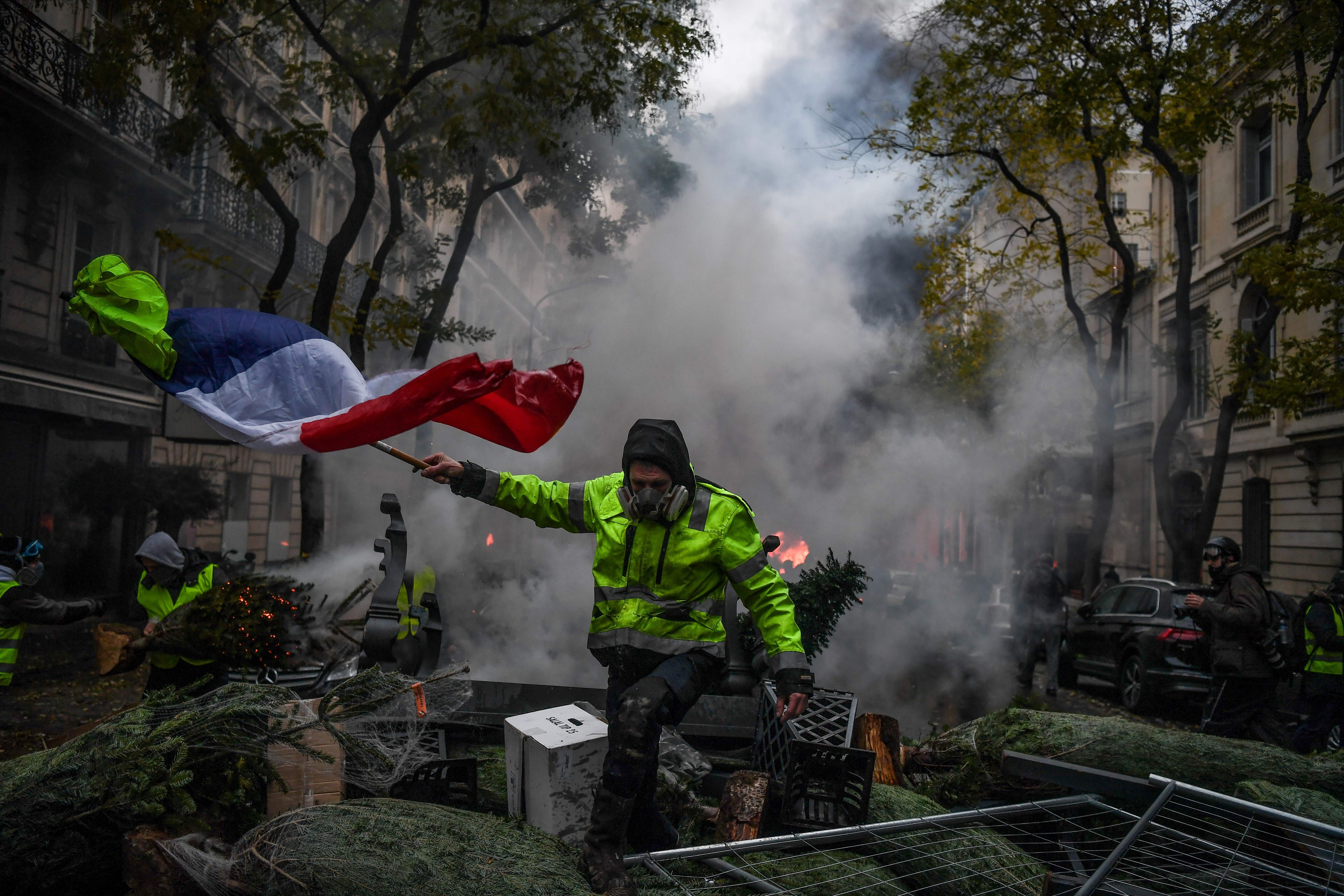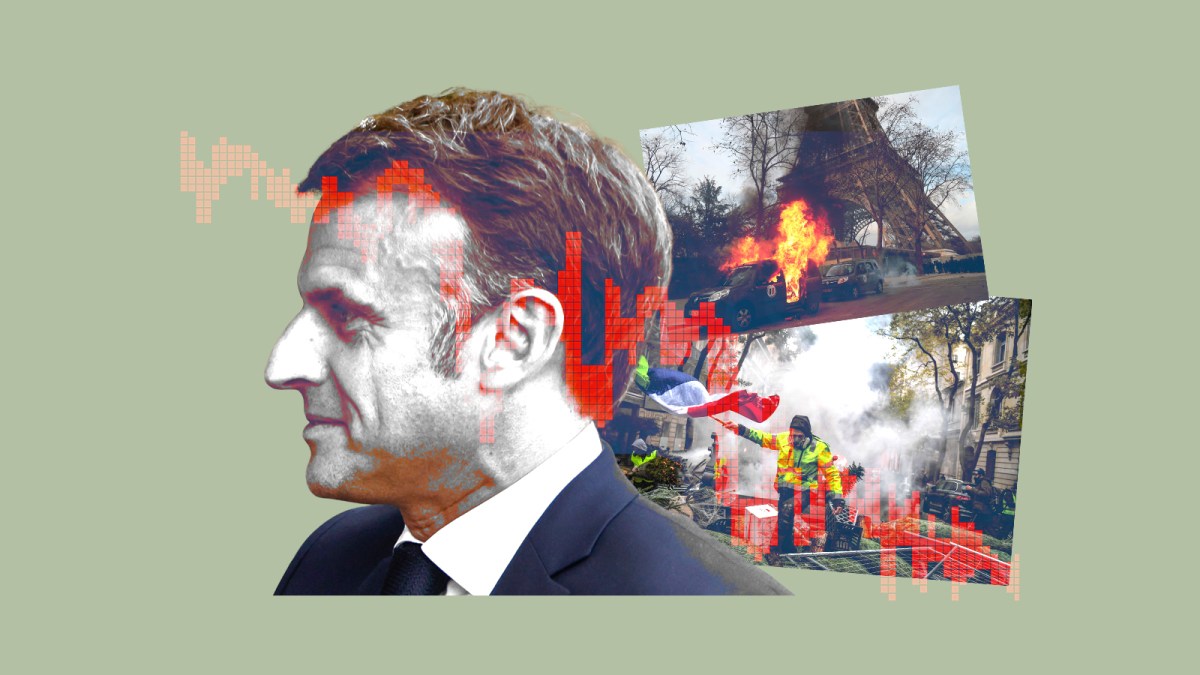France may need a bailout by the International Monetary Fund as it faces eye-watering public debt, political chaos and threats of social upheaval, the finance minister has warned.
Eric Lombard was speaking amid predictions that President Macron’s minority government will fall next month after François Bayrou, the prime minister, said he would seek a confidence vote in parliament.
With opposition parties from the radical left France Unbowed to the populist right National Rally saying they will vote to bring down the government, Bayrou’s move was described as “suicidal” by Nicole Dubré-Chirat, one of his own MPs.
His fall would leave the country rudderless and without a budget at a time when it has a debt of €3.3 trillion and a predicted deficit this year equivalent to 5.4 per cent of GDP.
The prime minister said the nation faced a “choice between chaos and responsibility”.
He described the vote in parliament as a “moment of truth” that came with the world at a “tipping point” with “strength and no longer respect for the law triumphing”.
• Debt pile has pushed French economy to the brink
Bayrou would almost certainly have faced a confidence vote next month, such was the opposition to his planned cuts in public spending. Some commentators believe he triggered the vote himself to go down in history as a martyr to tackling the national debt. Others say he still hopes to convince MPs to allow him more time in office.
“The weight of debt, with which we burden … French workers and future generations, is going to crush initiatives and, coupled with the demographic collapse, imperils the country’s social contract,” he said at a union congress on Tuesday.

François Bayrou, the prime minister, with Lombard in July
DAMIEN MEYER / AFP
In an attempt to win over left-wing MPs, he suggested raising taxes for the rich, saying: “Tax breaks that mainly benefit the wealthiest families and big groups will be abolished whenever they are considered unjust or useless.”
Bayrou said opposition MPs risked being taken to task by voters if they fuelled the turmoil by ousting him but his words went unheeded.
Jordan Bardella, the National Rally chairman, said the party would “never support a vote of confidence in a government whose choices make the French suffer”.
The political turbulence spooked investors. The French stock market fell and the country’s banks, which hold much of the debt, took a big hit.
• The ‘French Elon Musk’ bankrolling the country’s populist right
As concerns about the economy pushed the ten-year bond yield above 3.5 per cent, Lombard said: “I bet that within a fortnight, our debt will be costing more than Italy’s.”
The turnaround is a humiliation for Macron who came to power in 2017 amid claims that he was the “Mozart of finance” only to preside over an historic decline.
Anne-Sophie Alsif, the head economist at BDO consultancy, told Le Parisien that not since the 1960s had French yields been higher than Italy’s.

Marine Le Pen
JULIEN DE ROSA/AFP/GETTY IMAGES
It could get even worse, according to Lombard. The minister said he did not want to scare his compatriots but added that “a risk exists that the IMF will intervene”. The government “hopes to and must avoid” a scenario similar to the one that engulfed the UK in the 1970s, he said.
Perhaps mindful that he had scored an own goal by exacerbating market nervousness, Lombard later backtracked, saying: “The French economy is solid … and we finance our debt without difficulty. We are today threatened with no intervention either from the IMF or from the European Central Bank.”
Bayrou has announced plans for spending cuts and tax rises totalling €43.8 billion to head off what he has called a “national emergency”. But his budget, which includes highly unpopular measures such as the abolition of two bank holidays and healthcare cuts, has encountered massive opposition.
His decision to seek a vote of confidence on September 8 is viewed as the last, desperate gamble for a prime minister who knows his days are probably numbered.
Boris Vallaud, a leading Socialist MP, said the prime minister had in effect offered his resignation. Politicians on all sides of the spectrum agreed, talking about Bayou as though he was already history.
Nicolas Metzdorf, an MP in the ruling coalition, said: “I hope that a new government will be appointed very quickly.”
Marine Le Pen, the leader of the National Rally, called for new parliamentary elections to end the stalemate. Jean-Luc Mélenchon, the France Unbowed leader, urged Macron to resign, which would lead to an early presidential election.

An activist taking part in the gilets jaunes protests in 2018. There are calls for a new nationwide day of blockades on September 10
ALAIN JOCARD/AFP/GETTY IMAGES
Macron, whose unexpected decision to call snap parliamentary elections last year led to the political deadlock, said this month that he had no intention of a repeat, having seen one of his prime ministers, Michel Barnier, the former EU Brexit negotiator, fall after three months and another, Bayrou, on the cliff edge nine months later.
But if the government is toppled, Macron will come under pressure to renege on his word, with some commentators saying new elections could be the only way of terminating the stalemate in the National Assembly. Even Bayrou himself said this option could not be ruled out.
Adding to the chaos, calls started on the internet by a group of far-right conspiracy theorists for nationwide strikes, protests and blockages on September 10 have gone viral and been taken up by the left and by unions.
Telegram chat groups are continuing with preparations for the “let’s block everything” movement despite the prospect of a government collapse. Participants said they were organising general assemblies, planning roadblocks and creating “citizens’ resistance networks”.
Sixty-three per cent of voters back the movement, according to a Harris Interactive poll for RTL radio this week.
At a meeting of activists in Orléans, one participant said strikes and protests were not enough. “We have not managed to drive back the bosses, the bourgeoisie and its political class because we haven’t blocked the country,” he said, according to France 3, the state television channel. Another said the rich had to “feel the cannonballs. They have to be scared.”

